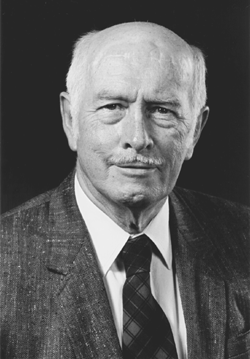![[Currents header graphic]](http://www.ucsc.edu/homeart/currents_header.gif)
![[Currents header graphic]](http://www.ucsc.edu/homeart/currents_header.gif)
August 24, 1998

|
|
Joseph Bunnett
|
By Tim Stephens
An enormous quantity of old, lost, and abandoned chemical weapons are scattered throughout the world, posing serious hazards and disposal problems for many nations.
A new book addressing these issues has just been published, coedited by Joseph Bunnett, professor emeritus of chemistry at UCSC, and Marian Mikolajczyk, professor of chemistry and director of the Center of Molecular and Macromolecular Studies at the Polish Academy of Sciences in Lodz.
The book, titled Arsenic and Old Mustard: Chemical Problems in the Destruction of Old Arsenical and 'Mustard' Munitions, is based on the proceedings of a workshop sponsored by the North Atlantic Treaty Organization (NATO) and cochaired by Bunnett and Mikolajczyk.
Bunnett said the book is largely concerned with problems in Europe, where more than 10 million lost chemical munitions from World War I, most still laden with poisons, are estimated to lie buried in old battlefields or abandoned on old military bases.
"They were either fired in battle but burrowed into the earth instead of exploding, or they were abandoned on old military bases, often being buried in a ditch with no record of where or what they are," said Bunnett, who in recent years has put his research on the back burner to focus on the destruction of chemical weapons.
In some parts of Europe, farmers frequently plow up unexploded chemical munitions from World War I, more than 75 years after the end of the war.
Arsenic and Old Mustard provides an overview of chemical weapons disposal issues and includes chapters with detailed descriptions of techniques for dealing with unexploded chemical munitions.
Other chapters address the problem of destroying stockpiles of chemical weapons in the United States, Russia, and other countries that have made internal and international commitments to destroy their chemical weapons.
"The book contains explicit detail on the chemical warfare programs of Germany and the U.S.S.R., in both cases written by senior officials now responsible for clean-up efforts," Bunnett said.